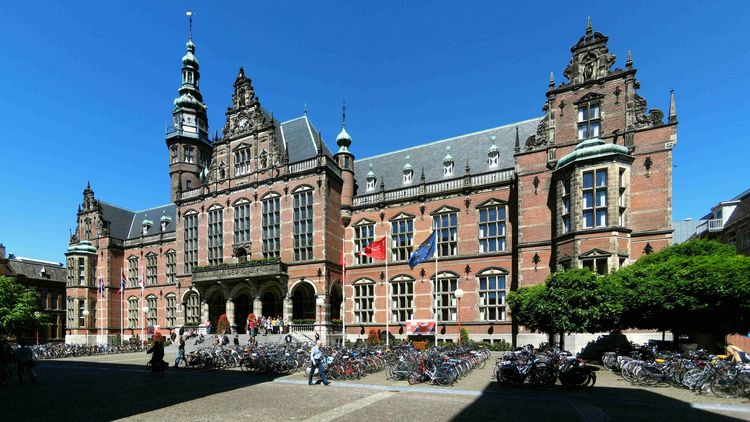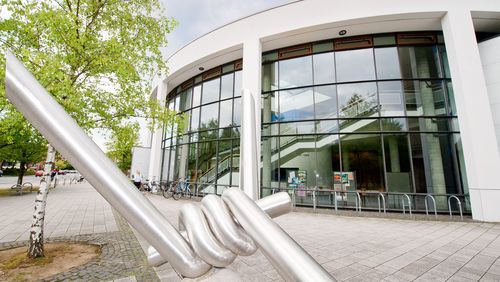A joint outlook for the future: following the recent renewal of their 40-year-old cooperation agreement, the Universities of Oldenburg and Groningen have drawn up a strategy paper setting out the key focus areas for their fifth decade of cooperation.
The Presidential Board of the University of Oldenburg and the Board of the University of Groningen have adopted the Roadmap for Cooperation 2020-2030, which defines seven fields in which the partner universities specifically aim to deepen their cooperation in research, teaching and transfer. At the same time, the strategy explicitly leaves open the possibility of new initiatives and projects in other fields, and will be continuously developed at annual meetings between the two universities' governing bodies and in other contexts.
"We have commenced another decade of our partnership with great enthusiasm. In the Roadmap we have mapped out new fields, in addition to the existing ones – for example in medicine – that will shape our future cooperation," said Professor Hans Michael Piper, President of the University of Oldenburg. The President of the University of Groningen Professor Jouke de Vries emphasized: "As European universities we have a duty to contribute to the goals of sustainable development. Joint projects in research, teaching and transfer are especially important here. Together with the University of Oldenburg, we want to make further advances in the coming years, not only in healthcare, but also in the areas of energy transition or inclusion."
The central governing bodies of the two universities have agreed to actively promote deeper cooperation through financial, organizational and other forms of support. Among other measures, they plan to offer more joint summer schools, seminars and exchange schemes, as well as introducing new joint study programmes and degrees – in particular binational doctorates. They also plan to keep track of the number of students enrolled in joint study programmes such as the European Medical School Oldenburg-Groningen (EMS), as well as the number of joint publications, patents or start-ups.
The Roadmap's seven core fields in detail
"Healthy Ageing for a Healthy Society" is the motto for further developing medical training at the EMS as well as healthcare research at the universities' joint Cross-Border Institute of Healthcare Systems and Prevention (CBI), which was founded in 2019. Both sides also plan to increase their support for binational doctoral degree programmes.
The two universities have long cooperated in research on the Dutch and German languages and history, on Oldenburg's side for example at the Institute for Dutch Studies, or on the subject of church history. They now aim to deepen this collaboration by organizing joint workshops, doctoral degrees and projects in cooperation with archives and museums, as well as by increasing student mobility between the two locations.
Another field in which the two partners aim to increase collaboration is the "Energy Transition and Adaptation to Climate Change". Here, they envisage deeper cooperation in the area of energy research conducted within the universities' respective networks, as well as joint doctoral projects, building on the binational Master's degree programme Water and Coastal Management.
The universities also plan to expand their long-standing collaboration in the field of "Law and Politics for a Sustainable Society". Dual Bachelor's and Master's degrees are to be introduced under the aegis of the Hanse Law School, a joint project of the Universities of Oldenburg and Bremen in which the University of Groningen has long been a cooperation partner. Scientific workshops will further promote joint research in this area.
Researchers at both universities are focusing on the field "Digital Society and Technologies". The partners aim to consolidate and expand existing contacts in mathematics, computer science and other disciplines in the coming years. A key topic for deeper cooperation in this field is human-cyber-physical systems, i.e. interaction between humans and technical systems.
Teacher training has been a special component of the cooperation between the two universities for decades. The partners are currently working together in a project promoting the internationalization of teacher training which is funded by the German Academic Exchange Service (DAAD), and aim to strategically expand their cooperation in this field in the future. The renewed cooperation agreement signed last October sets out the partners' intention of jointly increasing awareness of cultural diversity among trainee teachers.
Knowledge and technology transfer were also explicitly mentioned for the first time in the agreement signed last autumn, and are consequently an integral component of the Roadmap. Both partners are engaged in efforts to extend the "Northwest Start-Up Region" in Germany – aiming to promote business start-ups – beyond the German-Dutch border with the help of cross-border business start-up teams. According to the Roadmap, the diverse networks and connections formed through knowledge transfer – involving actors from business, culture, the public sphere and other areas and operating through various transfer formats – will help the universities to "fulfil their third mission: to contribute to creating a sustainable and responsible society".




